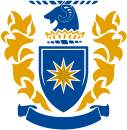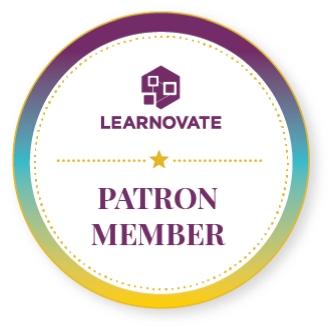Management
The role of curriculum management is pivotal in determining performance. Akari Curriculum Management Platform supports your institution with flexible workflows that reflect the University’s policies and not otherwise.
Manage approvals in a timely fashion, provide Deans with comprehensive tools for continuous improvement, and future proof the university’s investment and eliminate technical debt associated with legacy applications and the overhead and skills required to maintain such applications.

Massey University
Lorem Ipsum Dolor
Sit amet, consectetur adipiscing elit. Ut elit tellus, luctus nec ullamcorper mattis, pulvinar dapibus leo.
Sed ut perspiciatis unde omnis iste natus error sit voluptatem accusantium doloremque laudantium, totam rem aperiam, eaque ipsa quae ab illo inventore veritatis et quasi architecto beatae

Akari Curriculum: Key Benefits for Management
Agreements
Partnerships
Contracts
Work with and Manage Partners Effectively and Efficiently
Managing partnerships and collaborative arrangements can be challenging and is an area often identified for improvement and enhancement through external quality review procedures globally. With the rise of Trans-National Education, the number of partnerships is rising at an accelerated rate. The Akari Partnership Management solution is founded on good practice principles and guidance collated from our international customer base.
Our tool enables your organisation to assure the overall quality and standard irrespective of the type of partnership agreement in place – be it Graduate Apprenticeship, Articulation Partner, etc. As an integral part of the Akari Curriculum Management solution, the relationship between the Partner and the Partnership to each version of curriculum provision is seamlessly maintained.
Akari Partnership Management provides the mechanisms and business process via Akari’s powerful and configurable workflow tool for governance of the approval, development, and closure of the arrangements with the ability to monitor through all stages.
Relevant legal agreements and contracts may be associated and approved throughout the Partnership management process, enabling effective and immediate evidencing of all your partnership agreements with accurate and up-to-date records accessible to both internal as well as any relevant stakeholders.
Our Partnership Management Solution provides you with the ability to ensure that all agreements are achieving the specified outcomes and that academic standards are being maintained.
Visualisation
Programme Structure
Insights
Business Intelligence Tool
Digitised curriculum reveals the insights that underpin strategic decisions relating to the development and delivery of, and the pedagogical approach to the University’s curriculum. This ultimately drives the iterative and continuous improvement of quality.
Visualisation of the connected curriculum supports a longitudinal view of the Programme structure, and the syllabus is easily viewed/analysed from a constructive alignment perspective. Furthermore this supports meaningful continuous improvement based on the curriculum data. Thus data-driven decisions involving various stakeholders can be derived : “What is it the Programme trying to achieve? And is it achieving it?”
Leadership can satisfy adhoc queries with confidence that previously required resources to aggregate results from often unreliable sources of origin, e.g. How many courses in the Undergrad Programmes have content relating to First Nations culture.
Holistic views become the norm in evaluating Programmes against various attributes such as over-assessing or under-assessing, educational integrity and authentic assessment, weighted Learning Outcome Mapping to Graduate Attributes. As faculty and professional staff across Teaching & Learning teams become familiar with data snapshots from the curriculum business intelligence, cycles of reform become truly collaborative and dynamic.
Senior Management
Interoperability
HEd Systems
Integration Capabilities Support Senior Management and Leadership Teams
Via integration with downstream applications, leadership teams can obtain insights on student performance and retention against the curriculum adjusting the approach to optimise applicant conversions and student outcomes.
Senior leadership in Universities are focused on Learner acquisition and retention. Integrating the verified and version controlled curriculum data with published pages on the University Website such as Course Outlines, Handbook or Calendar, supports the marketing needs for prospective student attraction and existing student engagement. Using the curriculum data in these student-facing web pages enable learners to select courses and design degree pathways that engage and uplift learner success rates.
Interoperability between curriculum management platforms and other institutional applications is essential. Turnkey deployments integrate curriculum data on courses and programmes, with other systems, such as the learning management system (LMS) or the student management system (SMS).
Providing technical platform capability to build additional integrations with other institution specific downstream systems such as student support applications protects the system of record (single source of truth) philosophy and data ecosystem.
Coexistence with other business application data sets eliminates siloed data views, so relevant curriculum objects must integrate with institutional data warehouses or data lakes.
Oversight
Operational Management
SLA
Operational Management Benefits
Many Universities rely on manual processes to support the curriculum management functions. Universities’ governance can be supported by flexible workflows that reflect the Universities’ policies and do not determine the policies to fit the workflows. Automated workflows save professional and academic resources delivering consistent curriculum processes University wide.
SLA’s can be applied and administered to monitor and administer intervention when items are held up. Providing the right people with the request for timely action, be it providing input, reviewing or approving, with easily identifiable requests and related data elements/content drive efficiencies and effectiveness and therefore uplift productivity.
Data consoles can facilitate the operational oversight needed to monitor across school, faculty or University-wide.
Managing approvals for new and modified courses and Programmes in a timely fashion and therefore better meeting the needs of the Registrar’s office and marketers from an enrolment point of view benefits from efficient administrator oversight and visibility.
Providing Deans with simple to use yet comprehensive tools to manage the periodic reviews of Courses and Programmes enables the transition from periodic to continuous improvement. Similarly the provision of tools that embed accreditation mapping to external Professional Associations reduces the resource overhead in accreditations.
Digitised Curriculum
Legacy Applications
Transformation
Technology Benefits
Future proof the university’s investment using a commercially maintained and developed solution with ongoing roadmaps and development plans (to support future requirements such as Work Integrated Learning, competency-based assessment, personalised learner pathways, and micro-credentials), and bring statutory compliance and best practice capability ahead of needs.
Eliminating technical debt associated with legacy apps and the overhead and skills required to maintain such apps.
All Universities’ Strategic Plans address Digital Transformation as key to student engagement and success, tasking the CTO with operational systems support. Curriculum agility and its efficient management is an essential enabler of institutional digital transformation. Implementing a digitised curriculum asset and management system is ensuring peak operational readiness for transformation.
Student-centric and student engagement is heightened by ensuring the student has full visibility of the syllabus and LO expectations, plus visibility of mapping to understand the specific skill sets applying to job-readiness.
